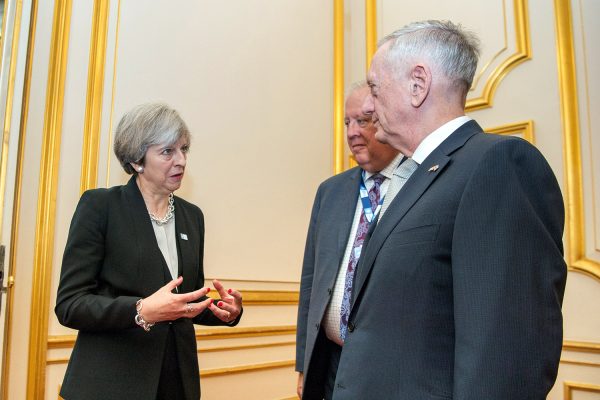
The compromise British prime minister Theresa May has hashed out with Northern Ireland’s unionist party to stay in power could make it even harder for her Conservatives to win back the trust of Middle England.
May didn’t have much of a choice. No other party was willing to prop up her minority government, which is nine seats short in the House of Commons.
But the pact with the hardline Democratic Unionist Party (DUP), which hasn’t updated its social views since the 1980s, compounds the mistake May made in calling an early election.
She insisted for months she didn’t need one, only to succumb to temptation when the polls pointed to a Conservative landslide.
Voters did not appreciate this opportunism. Far from a landslide, May ended up losing her majority. Labour, despite being led by a man who hasn’t updated his economic views since the 1970s, gained almost 10 percent support and thirty seats.
Blue-red divide
The election exacerbated Britain’s “blue-red” divide.
May campaigned on a platform of “Red Toryism” and defended the Conservative heartlands in the English countryside while expanding the party into once Labour-voting working-class areas.
Jeremy Corbyn lost some of the working-class vote but made up for it with advances in big cities and university towns.
The dividing line in British politics is no longer strictly about class but rather about values.
What Conservative voters, regardless of education and income, have in common is an old-fashioned sense of patriotism, suspicion of foreigners and support for Brexit.
The new Labour alliance is cosmopolitan, multiculturalist and disappointed that Britain really is leaving the EU.
Appalled
May’s arrangement with the DUP — which gives Northern Ireland £1 billion in extra funding in return for the party’s support on votes of confidence and budgets — does nothing to prevent Britain splitting into two tribes of roughly equal size.
Urban, college-educated voters are appalled that she would do a deal with the Protestant fundamentalist party.
The DUP not only blocked marriage equality in Northern Ireland; it condemns homosexuality altogether. The party opposes the legalization of abortion, is skeptical of climate change and argues that creationism ought to be taught in schools.
Combined with May’s embrace of Brexit and her hostility to immigration, the DUP pact threatens to undo the Conservatives’ rehabilitation as a center-right party that is at ease in modern Britain.
Moderate
The Conservatives are lucky Labour doesn’t reflect the views of modern Britain either.
Corbyn’s social views are relaxed, but his economic and foreign-policy agenda — higher spending, higher taxes, renationalization of industries, unilateral nuclear disarmament — is not what middle-income voters want.
Nor does Corbyn favor a “soft” Brexit that would see the United Kingdom remain in the European single market.
The challenge for centrist voters is deciding which party is most likely to moderate: the Conservatives under May (or her successor) or Labour under Corbyn.
Monday’s pact with the DUP doesn’t argue for the former.
